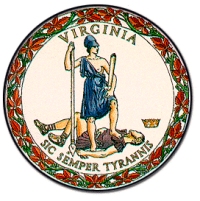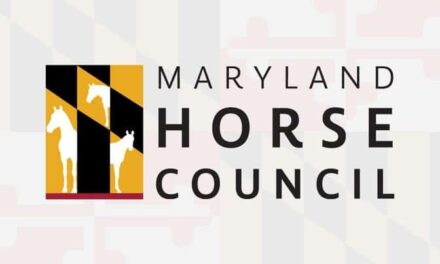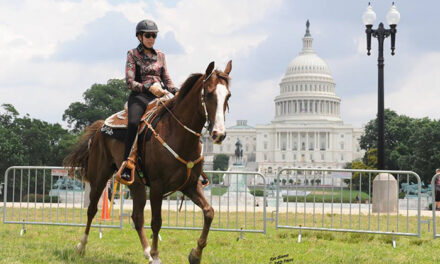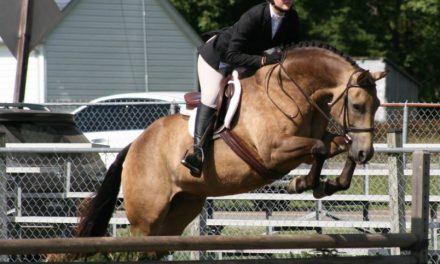From the VA Department of Agriculture and Consumer Services
On Aug. 11, a horse exhibiting neurologic signs was transported to the Marion duPont Scott Equine Medical Center in Leesburg from Culpeper. The horse was immediately isolated from the hospital population and has not come into contact with any other patients.
On Aug. 12, the Virginia Department of Agriculture and Consumer Services’ (VDACS) Animal Health Lab in Warrenton confirmed a diagnosis of Equine Herpesvirus-1 (EHV-1). The horse remains isolated while undergoing supportive care.
On Aug. 14, a second horse from the same farm developed a fever and neurologic symptoms and was euthanized. VDACS’ Animal Health Lab confirmed a diagnosis of Equine Herpesvirus-1 (EHV-1). The farm is under quarantine.
The Marion duPont Scott Equine Medical Center employed strict biosecurity measures and disinfection upon arrival and will continue to do so during the entirety of the horse’s hospitalization. The Marion duPont Scott Equine Medical Center is operating normally.
Equine Herpes Virus (EHV-1) infection in horses can cause respiratory disease, abortion in mares, neonatal foal death and/or neurologic disease. The neurologic disease caused by the neurologic strain of EHV-1 is called Equine Herpes Virus Myeloencephalopathy (EHM).
There have been no new cases of EHM in Culpeper or elsewhere in Virginia. The infected horses originated from a small private farm in Culpeper County. All exposed horses are under quarantine and are being monitored twice daily for fever (temperature over 101.50 F) and other clinical signs. If no new cases occur, the farm will remain quarantined with no equids allowed on or off until September 4th. There had been no movement of horses off the premises in the month preceding the first diagnosed case on the farm.
The EMC is not under quarantine. Staff there worked with VDACS earlier to develop a plan to hospitalize infectious horses, specifically EHM, following isolation and biosecurity protocols, and those protocols were followed in this case.
The vaccine history of these horses is uncertain. While there are vaccines against the EHV-1 virus, the vaccines are ineffective against the neurologic strain.













